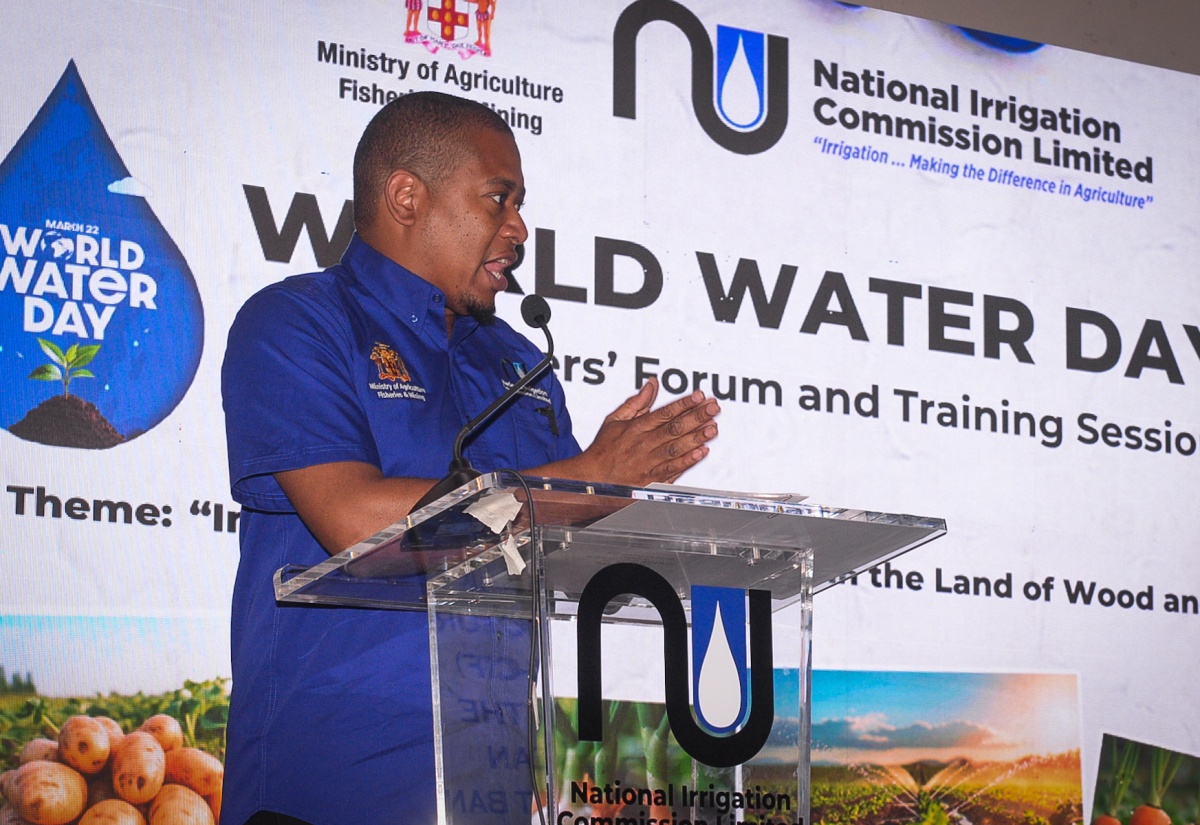Young People Urged to Pursue Studies in Water Management
By: , July 28, 2025The Full Story
Minister of Agriculture, Fisheries and Mining, Hon. Floyd Green, is encouraging more young people to pursue studies in water management to meet the need for expertise in the field, particularly as the Government undertakes billions of dollars in irrigation projects.
He made the call while addressing a recent World Water Day forum and training session at Ebony Park HEART Academy in Clarendon.
Minister Green advised that young people should not only think of the planting side of agriculture but also the technical aspect such as engineers and water management specialists.
He noted that with a number of projects on stream and others on the horizon, the National Irrigation Commission (NIC) will have the jobs available but persons must be qualified.
Under the theme ‘Impacts of Glacial Degradation in the Land of Wood and Water,’ the event addressed the importance of water management in the agricultural sector and the need for efficient water use.
Minister Green highlighted the projects being undertaken by the NIC to improve water supply to thousands of farmers across Jamaica.
Among them is the Pedro Plains project in St. Elizabeth for which ground was broken on July 11.
“We will take water from the Black River and use it to irrigate the plains of Pedro and that will service some 3,000 hectares and help more than 5,000 farmers.,” Minister Green said.
The Rio Cobre irrigation system in St. Catherine is being upgraded from open canals to modern 18-inch pipes, and irrigation works are taking place at Ebony Park, Yallahs West, St. Thomas; Hinds Town, St. Ann and other areas to better serve farmers.
In addition, a system has been commissioned to serve the 700-acre Parnassus Agro Park in Clarendon, benefiting more than 700 farmers.
The Minister further cited the Essex Valley Agriculture Development Project in St. Elizabeth, which will cover 810 hectares to benefit more than 700 farmers. It includes eight wells, five of which are producing; 60 kilometres of pipeline; 33 kilometres of new farm roads and renewable energy.
“In the Essex Valley project, we are putting in a solar system that will produce 3.1 megawatts of energy to run the entire project. We are also building storage… because if farmers increase production, they will need storage for their excess products,” he noted.


